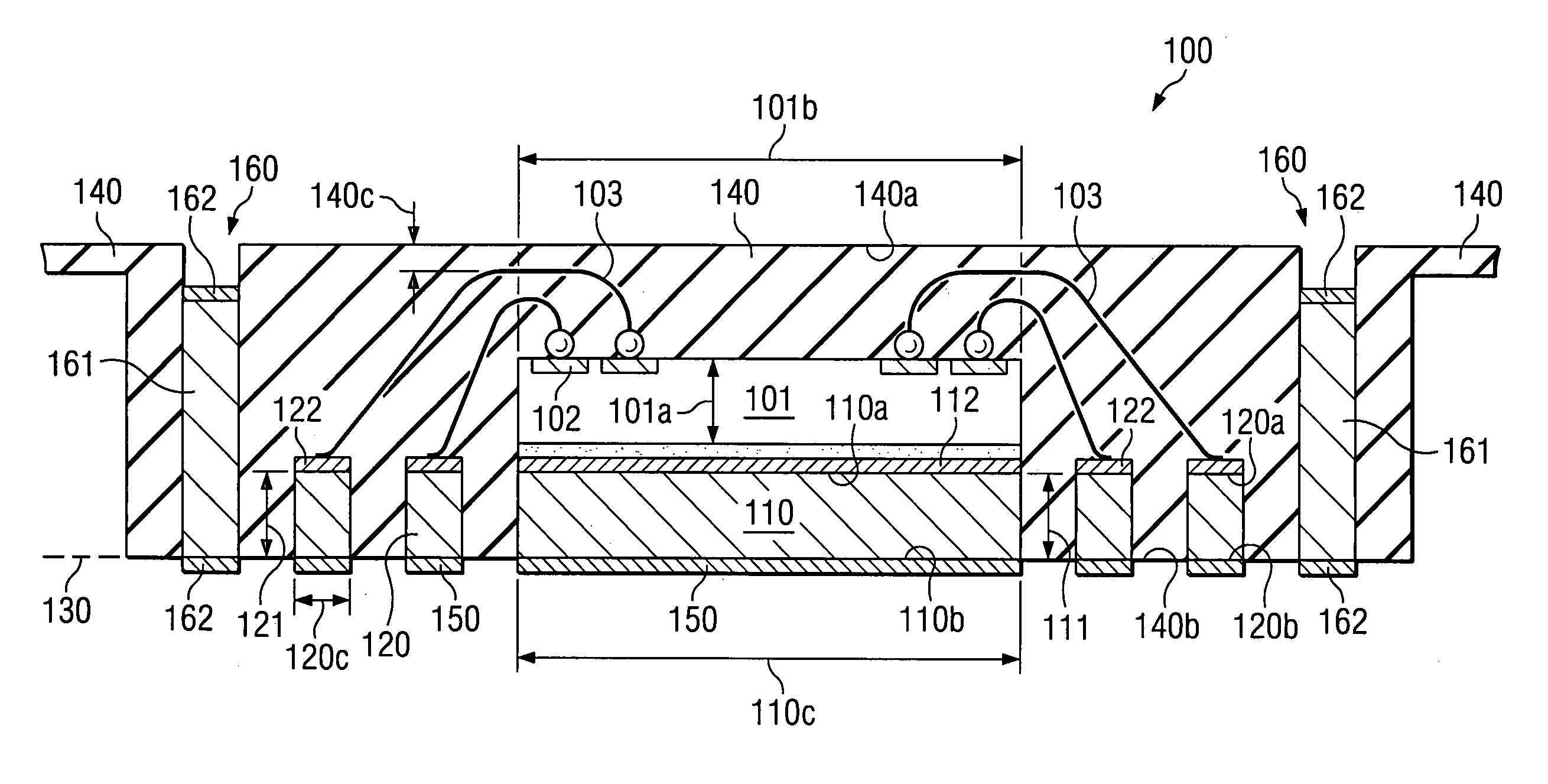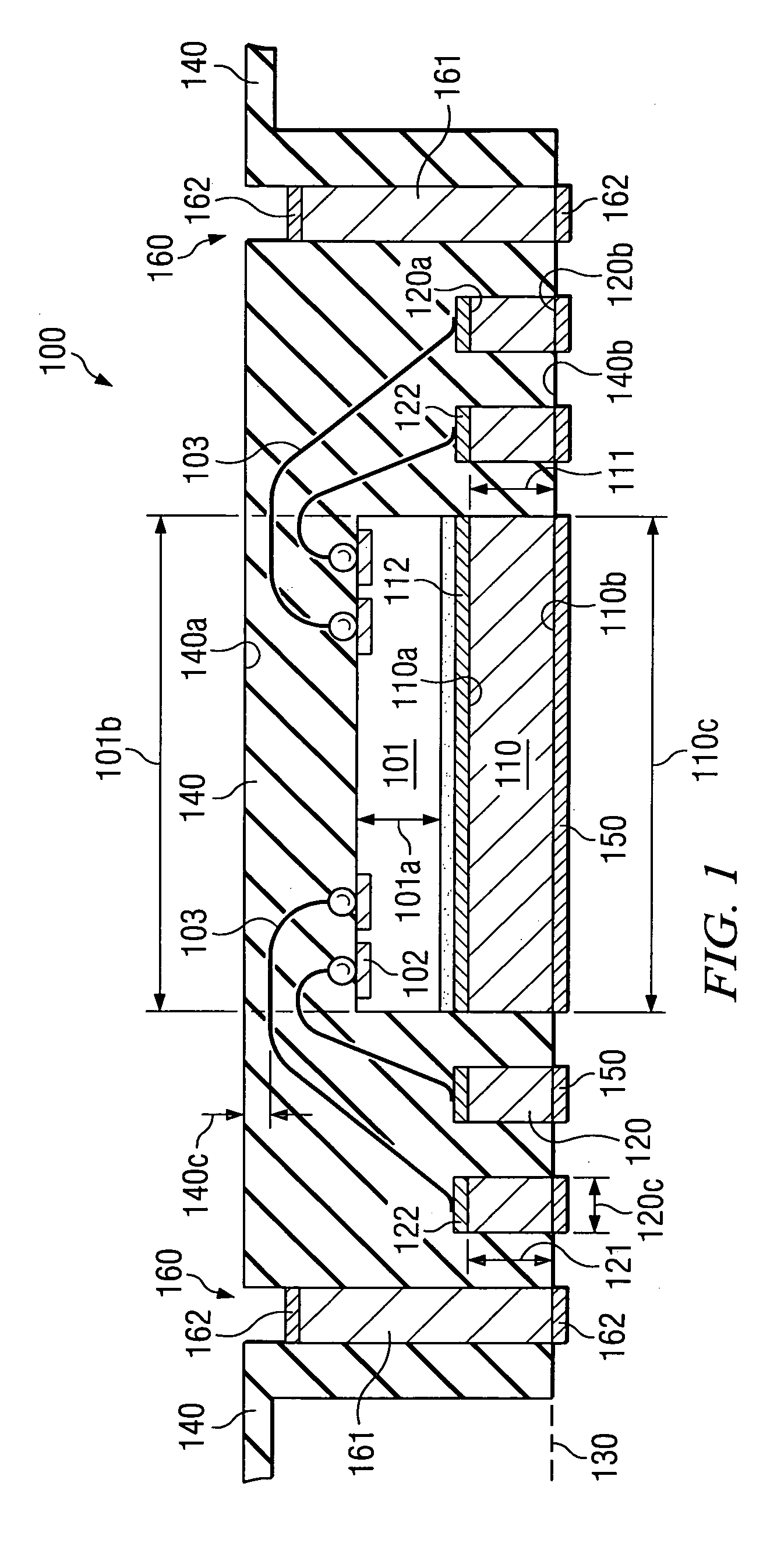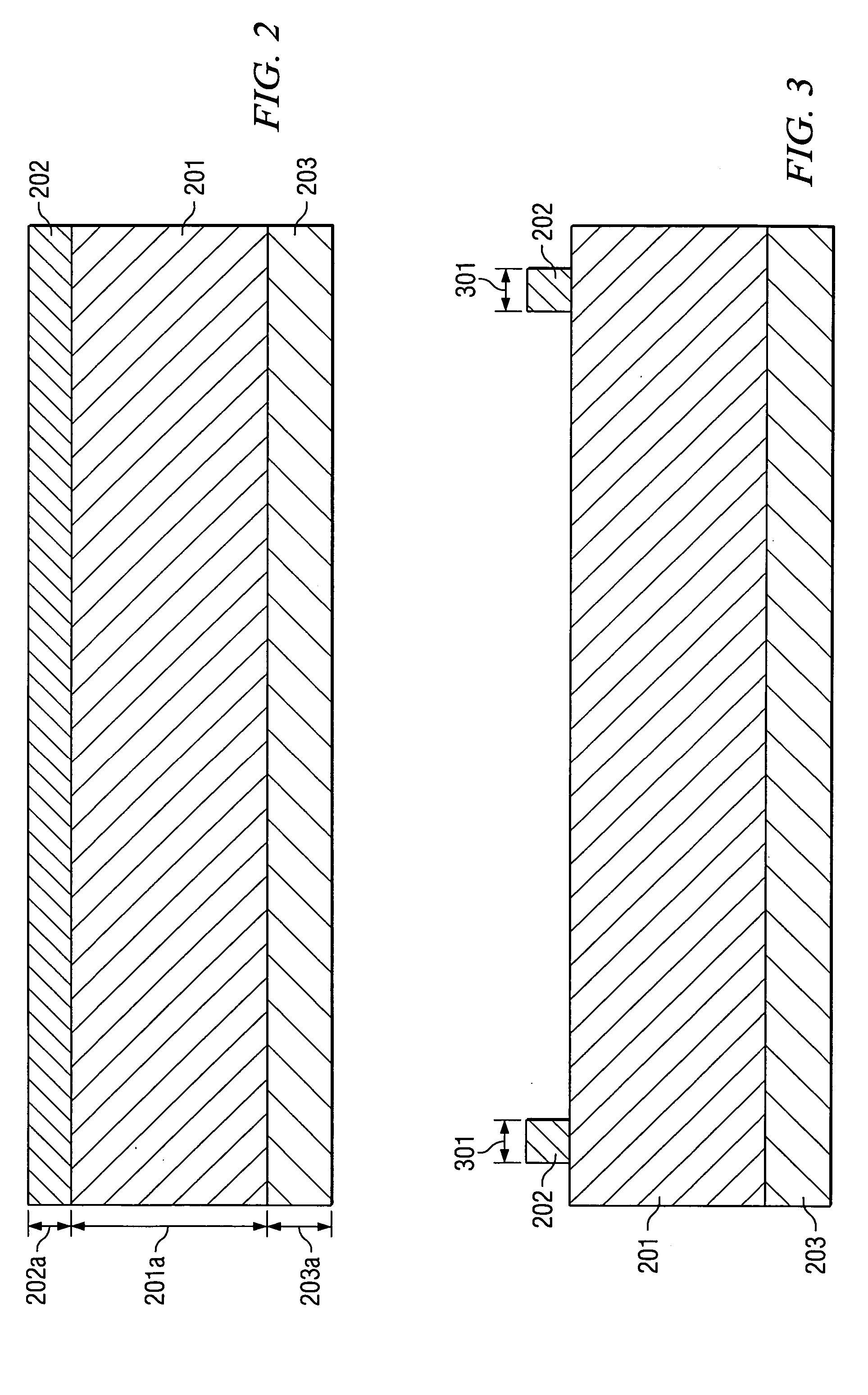Structure and method of molded QFN device suitable for miniaturization, multiple rows and stacking
a technology of qfn devices and molded components, which is applied in the direction of semiconductor devices, semiconductor/solid-state device details, electrical devices, etc., can solve the problems of difficult to reduce fabrication costs, the height of the device has not yet reached the desired thin profile, and the existing cavity-down package is difficult to achieve. , to achieve the effect of high speed performance, excellent thermal device performance, and increased density of bonding pads or solder lands
- Summary
- Abstract
- Description
- Claims
- Application Information
AI Technical Summary
Benefits of technology
Problems solved by technology
Method used
Image
Examples
Embodiment Construction
[0026]FIG. 1 shows a semiconductor device example, a representative of the Quad Flat Pack no-Lead (QFN) family, which has been designed and fabricated by the concepts of the invention. The device is generally designated 100. In the device is a semiconductor chip 101, which has a thickness 101a, a length 101b, a width (not shown in FIG. 1), and a plurality of bond pads 102. The market offers a wide selection of chip sizes 101 for QFN devices; a typical example is a chip of 2.4 mm by 1.65 mm; other chips may be smaller or much larger. The size and number of bond pads 102 also varies widely; the number, for instance, from 8 to 44. As an example, the chip just quoted has 10 bond pads, each pad the size 0.275 mm by 0.35 mm. The chip thickness 101a also varies considerably; in some devices, the thickness is 275 μm, in other devices only 100 μm.
[0027] In the device is further a first cuboid 110 made of metal. A preferred choice of metal is copper or a copper alloy; alternative choices are ...
PUM
 Login to View More
Login to View More Abstract
Description
Claims
Application Information
 Login to View More
Login to View More - R&D
- Intellectual Property
- Life Sciences
- Materials
- Tech Scout
- Unparalleled Data Quality
- Higher Quality Content
- 60% Fewer Hallucinations
Browse by: Latest US Patents, China's latest patents, Technical Efficacy Thesaurus, Application Domain, Technology Topic, Popular Technical Reports.
© 2025 PatSnap. All rights reserved.Legal|Privacy policy|Modern Slavery Act Transparency Statement|Sitemap|About US| Contact US: help@patsnap.com



